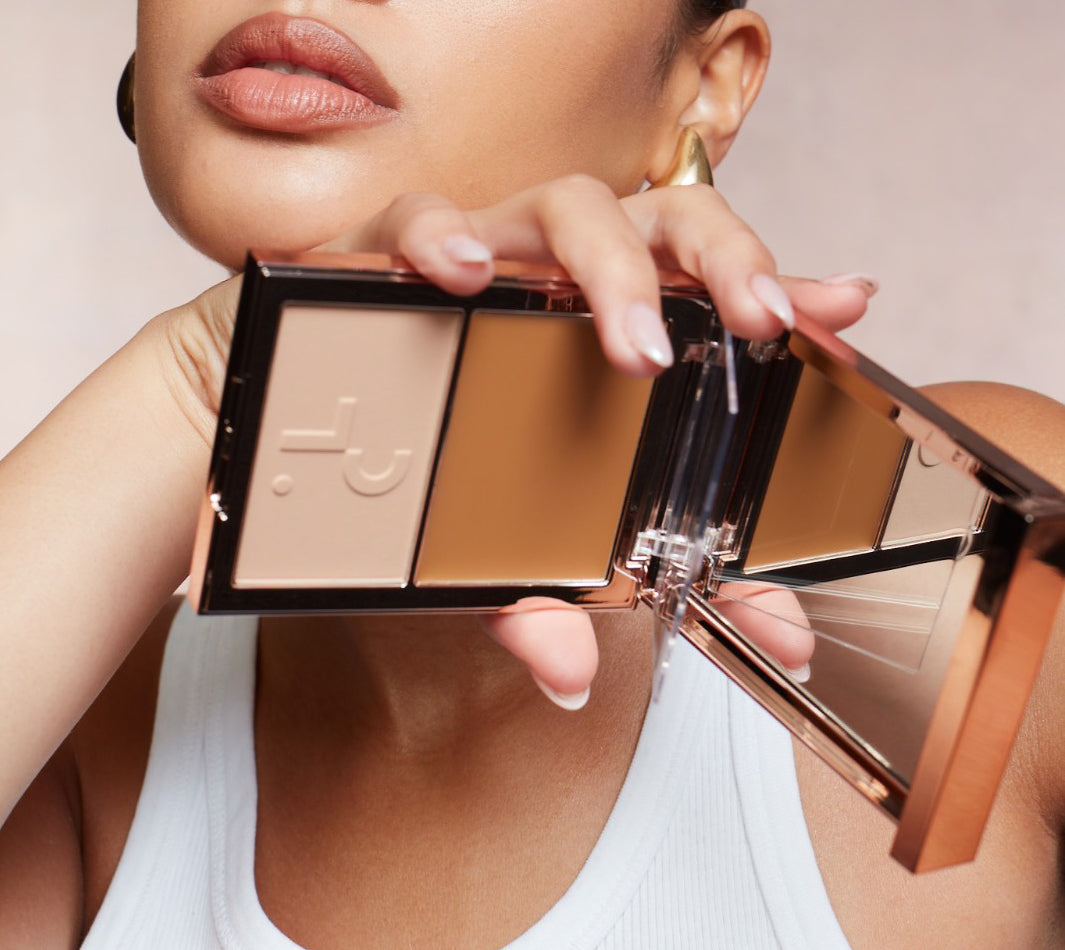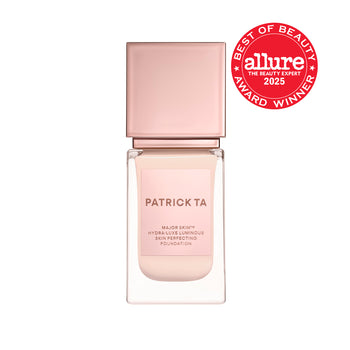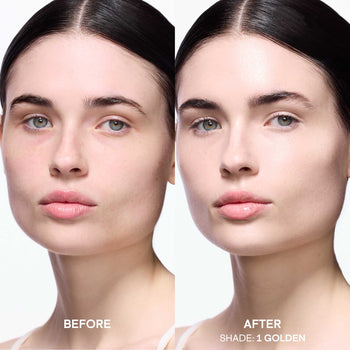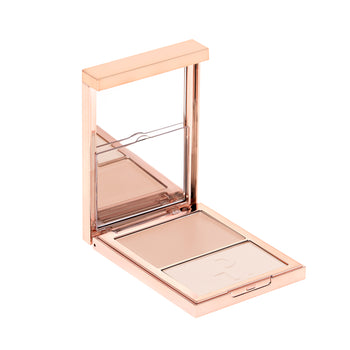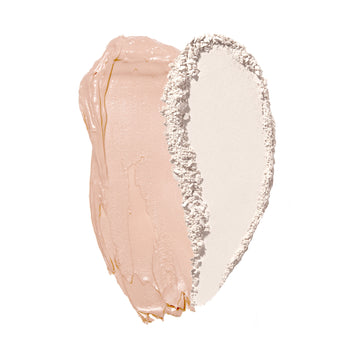Foundation vs Concealer: When & How To Use Each Product
Every good makeup look starts with a beautiful base—which can only be achieved with the right foundation and concealer. And we’re here to help you find yours.
What is Foundation?

A foundation creates the base for your makeup look, and it’s designed to be used all over the face. By evening out your skin tone and minimizing the look of imperfections, foundation prepares your complexion so that you have a smooth canvas to build on.
Foundations can take on many different forms (which we’ll cover in a moment), and offer different levels of coverage. Whether you’re looking for light coverage that allows your skin to show through or full coverage that gives you flawless, airbrushed skin, you’ll be able to find the product that matches your preferences.
Types of Foundation
The most common types of foundations you’ll see on the market are liquid, cream, and powder.
Liquid foundations are available in a range of coverages, from barely-there to full-coverage. They are also typically easy to build, and are available in a range of finishes that work for all skin types and preferences, including matte, satin, and dewy.
Creme foundations are thicker than liquid foundations. That said, many have lighter formulas that still feel weightless on the skin. They offer medium to full coverage, and like liquids, are easy to build upon as needed. These versatile foundations can work for all skin types, but are especially well-loved by those with normal and dry skin seeking more of a dewy foundation look.
Powder foundations (which come in both pressed and loose formulas) are particularly great for oily skin, but can work for all skin types. Unlike liquids and creams, powder foundations aren’t super buildable. However, they are the ideal choice for anyone looking for light coverage for a natural look.
How to Choose a Foundation
In order to choose the best foundation for your needs, you’ll need to consider a few things: skin type, finish (matte, satin, or dewy), and desired coverage.From there, you can find a foundation that checks off all of your boxes.
Color matching foundation to both your skin tone and undertones is also essential for getting that natural your skin-but-better look.
Foundation Application Tips
To get the full benefits of foundation, here are some expert application tips:
- Always start with moisturized skin, as this will make blending your foundation into your complexion a breeze.
- Prior to applying foundation, prep your skin with a primer. This gives your foundation something to grip onto for the longest wear possible.
- Set any oil-prone areas with a translucent powder. It will absorb excess oil to keep shine at bay.
What is Concealer?
A concealer is designed to spot-correct areas of the face that may need a little extra attention . Think: blemishes, uneven skin tone, and dark circles. Since concealers are designed to cover small areas of skin, they have much more concentrated formulas compared to foundations.
Types of Concealer
Just like foundations, concealers take on many different forms and finishes. The most common types include liquids, creams, and sticks. They are also buildable, and can create natural-looking coverage on the skin.
Typically, cream concealers offer a bit more coverage than liquid concealers, due to their thicker texture. These buildable concealers are great for all skin types, but work especially well with normal and dry skin.
Stick concealers come in packaging that looks similar to a lipstick. These creamy-yet-solid concealers offer medium to full coverage, and are often available in matte and satin finishes.
Can You Wear Concealer Alone?
A concealer can be used alone if you are going for a more natural look. This is ideal for those days when you want to keep your makeup light, but would still like to spot correct specific problem areas. That said, when you’re wearing a concealer on its own, it’s crucial to choose a shade that matches your skin tone as closely as possible.
How to Pick Your Concealer Color
Choosing the right concealer color is dependent on how exactly you plan on using the product. If you need a concealer to cover up a blemish or a dark mark, you will want a concealer that is the exact same shade as your foundation. This will give you the most natural look, as a concealer that is too light or dark will draw attention to the spot you are trying to hide.
If you’re looking to hide dark circles, you will want a concealer that is a shade or two lighter than your foundation color. This subtly lighter color helps brighten the area for more energized eyes.
Concealer Application Tips
Here are a few tips for seamlessly applying your concealer:
- Blending is key when it comes to getting natural-looking concealer. Dab the product onto the area you’re looking to treat, and then gently blend so that it melts into your foundation.
- To maximize its staying power, diffuse a bit of translucent powder over your concealer.
Foundation vs Concealer: Which Comes First?
Generally speaking, this comes down to your preferences. However, it is typically a good idea to apply your foundation first, as the coverage you get from your foundation may allow you to use less concealer.
That said, knowing when to use concealer under or over your foundation will also depend on the exact formulas you’re using. For example, a cream concealer won’t easily blend on top of a powder foundation, so in this instance, you’d want to apply your concealer first.
Your foundation and concealer are your ultimate tools for starting your makeup look strong. With a good base, you’ll be able to create any look you desire.
@patricktabeauty
@patricktabeauty










